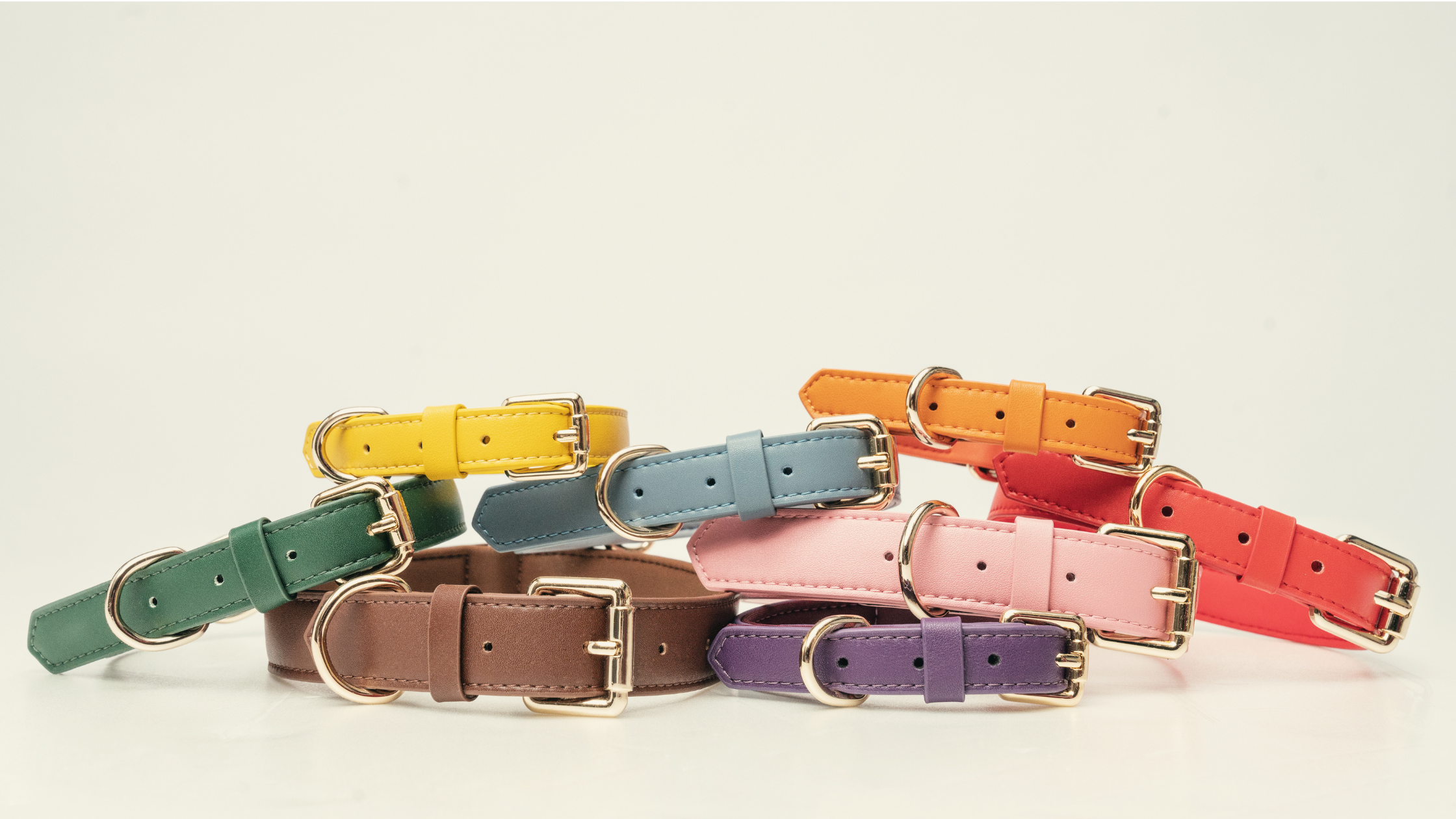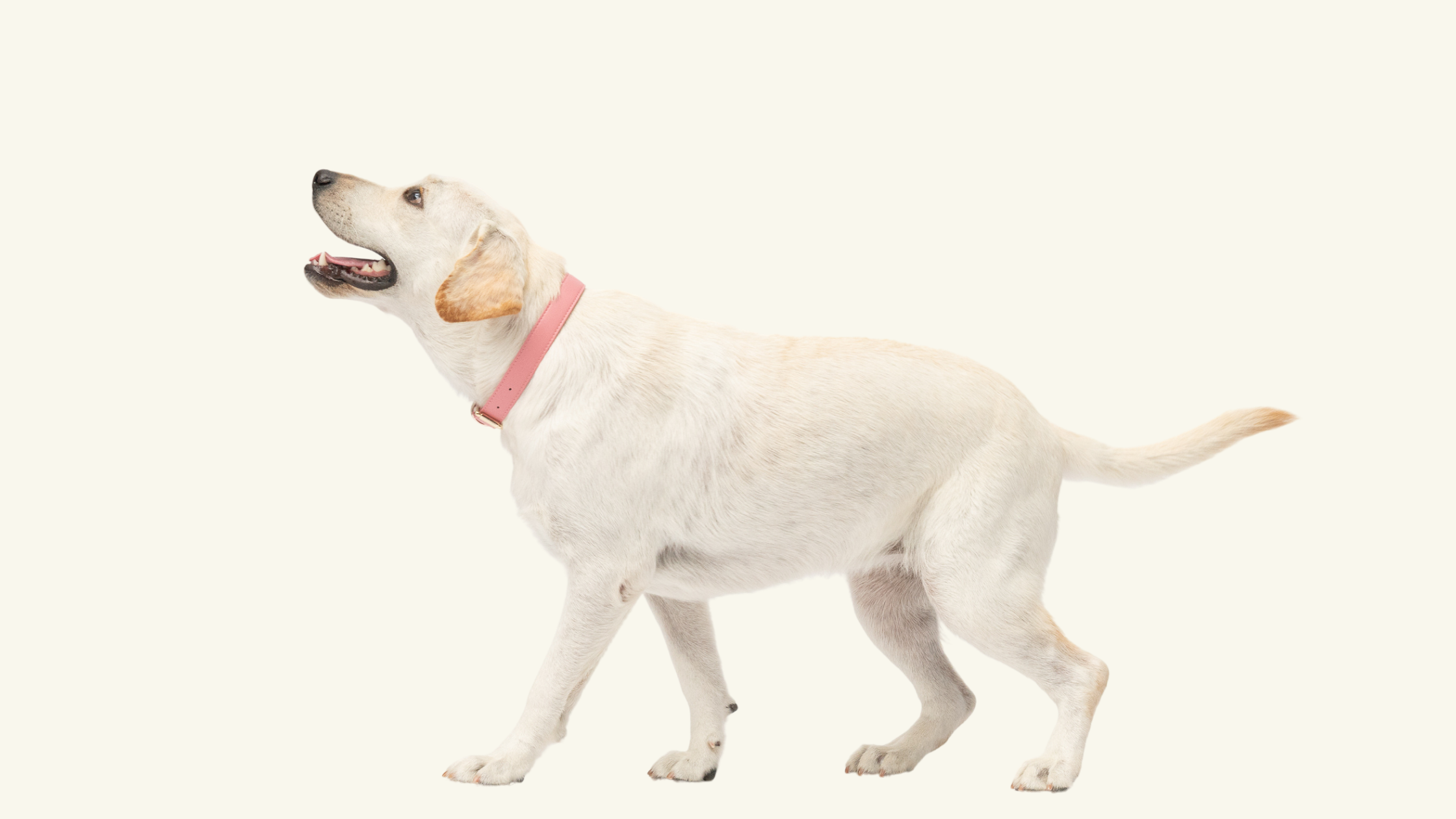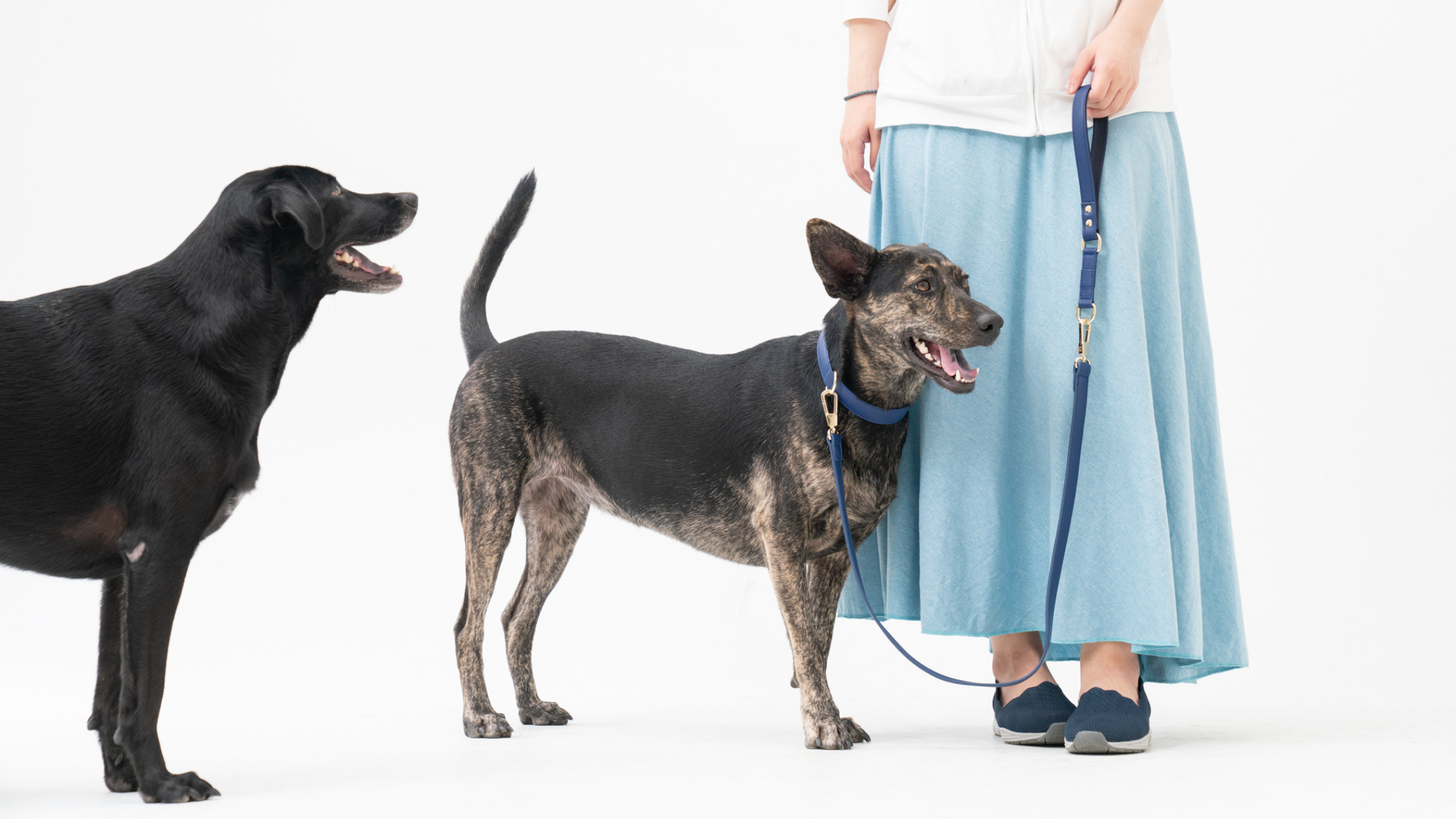
How to Choose the Right Dog Collar?
In the US, 63.4 million households own dogs, with almost 90 million of them in the country! Maybe you're planning on being one of the many proud dog owners soon. In that case, congratulations!
However, becoming a new pet parent can be stressful.
What do you feed them? What toys will they like? What dog collar should you get?
If you're not sure what type of dog collar to choose for your pup, not to worry. In this article, we'll discuss the ones available and which ones are best.
Training Collars
One of the first types of collars you might look into getting is training collars. After all, their name suggests that they'll help keep your pup well behaved.
However, some training collars are better than others. Below, we'll cover some of the ones you should avoid and ones that are better alternatives.
-
Pinch Collars
Pinch collars are also known as prong collars. As you can tell by the names, this type of collar is made up of metal prongs that face inward. Whenever a dog tugs at the leash, this causes the metal prongs to dig into their neck.
It's pretty evident that this can be quite cruel to the dog. While some swear by its efficiency, there are better ways to train your dog, such as through positive reinforcement rather than through punishment.

-
Choke Collars
Choke collars are slightly better than pinch collars, but not by much. These are made up of metal links and whenever your dog pulls, it tightens around their neck.
The hard metal material that choke collars are made of means the choking action can potentially do damage to your dog's throat. In the worst-case scenario, it can cause their trachea to collapse, their neck to sprain, or even result in death.
-
Shock Collars
Shock collars do exactly what you think they do: they deliver an electric shock to your pet either through a remote control or when they pass a certain boundary on your property.
Needless to say, this type of dog collar is very inhumane and shouldn't be used. Many people resort to shock collars to train their dogs not to bark needlessly, but again, there are better ways to control this behavior, such as through positive reinforcement.

-
Martingale Collars
If you want to train your pooch not to tug on their leashes, then these are a better choice than the ones listed above. Martingale collars were actually first designed for Greyhounds, since they have smaller heads than most other dog breeds.
These collars work with a double loop. Whenever a dog pulls forward, they tighten up. Because Martingale collars aren't made of metal, they're gentler on your dog and are less likely to choke them.

Flat Collars

Flat collars are also known as flat-bucket collars. It's made of a simple buckle that snaps shut, and it's the standard and most commonly found type of dog collar. It's great if you want to attach something like an ID tag to your dog's collar.
If your dog is well-behaved and doesn't tend to try and slip away, then this can be ideal for them.
GPS Collars
If you're worried about your pup running off and getting lost, or someone stealing them, then consider getting a GPS collar. For example, there's the Fi dog collar, which works similarly to how a Fitbit does for humans.
With the Fi dog collar, it tells you how many steps your dog needs to stay fit. Plus, it allows you to track how many steps Fido takes a day. In addition, it allows you to connect with other Fi collar dog owners.
Of course, this type of technology doesn't come cheap. The Fi collar costs $149 plus an additional $99 per year after the first year for GPS coverage, which makes it a very pricey product. However, it might be worth it for you to get some peace of mind.
Leather Collars

Leather is a popular type of dog collar material because it is durable. While leather can be tough in the beginning, it can soften up the more it's exposed to your pup's oils.
Types of leather your dog's collar can be made of include English bridle, padded, and soft Italian.
If you have a bigger dog that's pretty active, then the English bridle leather collar is optimal for them. As for the padded collar, these work best for dogs with sensitive skin and/or necks. And last, but not least, the soft Italian leather is good for toy breeds.
Of course, leather is just a material. Types they come in include the traditional buckle, flat, and rolled.
Vegan Collars

Vegan collars can be an excellent choice for your dog, especially if you're looking for something that's cruelty-free. But that's not the only benefit that they come with.
A major plus point of vegan collars is they're water-resistant. Leather collars aren't, which means the color dyes can run and stain your pooch's skin. These are also quick to dry, meaning Fido won't be shivering with a wet collar.
Also, these collars are breathable, which can be fantastic for pups with sensitive skin. These collars are also very lightweight and durable (they're scratch-resistant and antibacterial), which means you can get a long-lasting collar that'll be comfortable on your pet.
An advantage that is frequently over looked is that our vegan collars are hand washable because they are water resistant. You and your doggie will be able to enjoy our collars longer and skink-free.
Choose the Right Dog Collar for Your Four-Legged Friend
Now you know the types of dog collars available for purchase.
As you can see, they're not all created equally. Some are fine for your pets, while others are terrible. With our advice, you now know which ones are the best you can get your pup and keep them happy and healthy!
Want to get a vegan dog collar for your pooch? Then take a look at our selection now!



